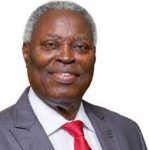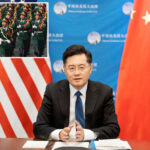Experts in healthcare management and delivery systems in Nigeria have outlined a number of factors militating against universal health coverage in Nigeria, despite concerted efforts by government to improve the situation.
The medical experts bared their minds at a policy dialogue organised by Nextier, a public policy firm that works to solve the complex development challenges in the continent, with the theme: “Strengthening Civil Society Organisations as Health System Accountability Stewards”.
Among stakeholders who dissected the topic were Oluseun David Onigbinde, Co-founder and Chief Executive Officer, BudgIT; Stanley Achonu, Nigeria Country Director, The ONE Campaign; Aanu’ Rotimi, Executive Director, Centre for Accountability and Inclusive Development; Dr Uzodimma Adirieje, Chief Executive Officer, Afrihealth Optonet Association. Dr Achama Eluwa, a consultant at the World Bank Group while The World Health Organisation, moderated the event.
Speaking on critical stakeholders responsible for driving accountability in the system, Mr Stanley Achonu emphasised the need for the citizen’s voice to be heard as its the most critical voice for ensuring accountability.
He encouraged citizens to be bold and ask questions and demand accountability from leaders.
Lending his voice to the discussion, Dr Uzodimma Adirieje explained that faith-based organisations could contribute their advocacy and mobilisation skills, while universities can provide research skills and help disseminate information.
Stanley Achonu then noted that non-profits could support the civic engagement space by creating platforms like the health sector reform coalition to coordinate the activities of civil society organisations.
He encouraged CSOs to collaborate in the joint development of campaigns such as the open government partnership program.
Dr Uzodimma also highlighted that most stakeholders don’t trust CSOs are partners. He blamed CSOs partly because of their conduct. He encouraged CSOs to be knowledgeable and well-informed since they are the bridge to the people.
Stanley Achonu butressed the need for collaboration to bridge the relevant skills gap, especially in technical areas like health.
Dr Uzodimma Adirieje encouraged CSOs to complement each other in resource mobilisation, data collection and evidence generation. Finally, he highlighted the need to engage gatekeepers properly before projects. Aanu Rotimi highlighted that to improve the public perception of CSOs, CSOs should define their area of expertise.
Furthermore, she encouraged CSOs to rely less on donor funds and explore sustainable means of financing to ensure that they can remain focused and unbiased while working with other stakeholders. Furthermore, she encouraged CSOs to give constructive feedback and commend the government when it performs well. Finally, she encouraged the government to see civil societies as partners, not antagonists.
Oluseun Onigbinde urged CSOs to hold leaders accountable for health outcomes and not just infrastructure investment.
He encouraged CSOs to channel their advocacy efforts to demand good outcomes in addition to outputs, noting that leaders must drive contextual solutions in their engagement with the government.
He also urged civil society organisations to be solution enablers and build the capacity to deliver solutions.
Speaking on best accountability practices, he explained that while the health sector is grossly underfunded, an even bigger problem is the inefficient utilisation of resources.
According to him, CSOs should strengthen accountability in the health sector by incorporating ward committees and community-based organisations into accountability frameworks.
On his part, Dr. Achama Eluwa emphasised the need for efficient utilisation of resources because of the health system resource constraint. Finally, panellists commended the remarkable progress made by CSOs and urged increased effort to ensure that every Nigerian has affordable healthcare.



